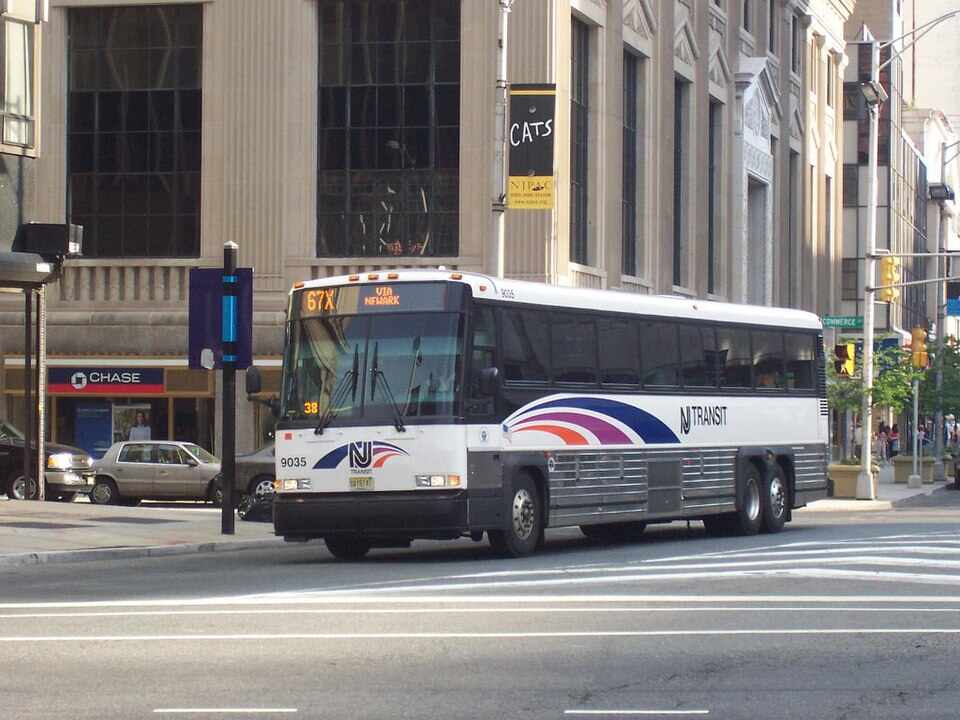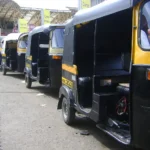The morning commute just got way more complex for 350,000 New Jersey rail riders. As of May 16, 2025, locomotive engineers with the Brotherhood of Locomotive Engineers & Trainmen (BLET) have gone on strike, shutting down the entire NJ Transit rail system.
This marks the first time since 1983 that NJ Transit has faced a system-wide rail stoppage. Back then, conductors walked off the job for 34 days over wage disputes – a historical echo of today’s situation.
“It is unfortunate that locomotive engineers have opted to disrupt the lives of 350,000 NJ TRANSIT riders rather than continue working through ongoing negotiations,” said Governor Phil Murphy in the official press release.
For regular commuters like me, this means scrambling for Plan B. The timing couldn’t be worse with summer tourism picking up and many offices having ended remote work policies after the pandemic.
Why Are Engineers Off the Rails?
The strike comes down to dollars and cents. According to reports, BLET members currently earn an average base salary of $113,000 and are seeking increases to align with Long Island Railroad and Amtrak engineers, who make closer to $170,000.
NJ Transit counters that when overtime is included, their engineers already average $135,000 in total compensation, with top earners exceeding $200,000.
A federal Presidential Emergency Board (PEB 251) was appointed in July 2024 to investigate the dispute. The board endorsed NJ Transit’s proposal of cumulative wage increases of 21% (non-compounded) and two $1,500 lump-sum payments. Despite this recommendation, BLET members voted against the deal.
“I remain confident that a deal is within reach, but it has to be fair to the union and fiscally sustainable for the agency,” said NJ TRANSIT President & CEO Kris Kolluri, who noted the agency faces a $750 million pandemic-related deficit.
Monday Bus Plan: The 20% Solution
Starting Monday, May 19, commuters will have some relief – but not much. NJ Transit’s contingency plan can handle only about 20% of regular rail riders.
The emergency bus service will operate from four regional Park & Ride locations:
- Secaucus Junction to Port Authority Bus Terminal
- PNC Bank Arts Center in Holmdel to Port Authority (operated by Academy Bus)
- Hamilton Rail Station to Newark Penn Station for PATH transfers
- Woodbridge Center Mall to Harrison PATH Station
These services will run weekdays only during morning and evening rush hours – no midday, late-night, weekend, or reverse commute options available.
NJ Transit will also boost service on existing bus routes near rail stations, including routes 108, 112, 115, 129, 116, 133/135, 107, 193, 324, 145, 163, 164, 190, and 165.
Light rail (Newark Light Rail, Hudson-Bergen Light Rail, and River LINE) will keep normal schedules, as will Access Link paratransit service.
Similar Posts
Fares and Cross-Honoring
If you’re trying to figure out the financials, here’s the deal: existing rail tickets will work on the emergency buses and NJ Transit’s regular bus and light rail services.
For the Park & Ride services, adult round-trip fares range from $8 (Secaucus to Port Authority) to $48 (PNC Arts Center to New York via Academy Bus). Senior, disabled, and child fares are discounted.
Important note: your NJ Transit tickets won’t work on Amtrak, PATH, PATCO, SEPTA, ferries, or private carrier buses – you’ll need separate tickets for those services.
Beyond the Buses: Other Options
Savvy commuters should look beyond NJ Transit’s official plan. PATH trains from Hoboken, Newark, and Journal Square offer Manhattan access with trains running every 4 minutes during peak hours.
NY Waterway ferries from Hoboken and Weehawken provide around 3,000 seats daily – a small fraction of displaced rail riders, but potentially faster than bus alternatives.
Since January 2025, Manhattan’s $9 congestion pricing toll has already pushed some drivers to transit. This strike might reverse that trend, potentially worsening road congestion and affecting the revenue streams that support regional transit projects.
Work-From-Home Wednesday (and Monday, Tuesday…)
NJ Transit isn’t mincing words: “NJ TRANSIT strongly encourages employers to allow their employees to work from home if possible, limiting travel on the NJ TRANSIT system to essential purposes only.”
Companies across the region are dusting off pandemic-era telework policies. For those who must travel, experts suggest:
- Buying PATH/ferry tickets via mobile apps to avoid station lines
- Using NJ Transit’s carpool-matching portal to split costs
- Considering e-bikes or scooters for “last-mile” connections
Infrastructure Headaches
This strike highlights existing vulnerabilities in the region’s transportation infrastructure. The century-old North River (Hudson) tunnels, damaged by Hurricane Sandy in 2012, remain under Federal Railroad Administration oversight.
On April 28, 2025, an FAA radar outage affecting Newark Airport added another layer of transportation woes to the region, triggering ongoing investigations and some flight restrictions.
What’s Next?
Federal mediators from the National Mediation Board met with both sides in Washington, D.C. on May 15 and proposed resuming negotiations on Sunday, May 18.
The last engineers’ strike in 1983 lasted over a month. Whether this one extends that long depends on whether the gap between BLET’s salary demands and NJ Transit’s budget constraints can be bridged.

For now, NJ Transit has created a special web page at njtransit.com/railstoppage with updated travel information, and commuters can call (973) 275-5555 for 24-hour operator assistance.
The Monday morning commute will be the first real test of the contingency plan – and commuters’ patience.
Frequently Asked Questions About the NJ Transit StrikeWhat exactly is happening with NJ Transit trains right now?
All NJ Transit train service is completely shut down as of May 16, 2025. The locomotive engineers who drive the trains have gone on strike, which means no trains are running on any NJ Transit rail lines. This affects about 350,000 daily riders who normally use these trains.
How long will this strike last?
No one knows for sure. The last NJ Transit strike in 1983 lasted 34 days. Federal mediators are working with both sides, with negotiations scheduled to resume on Sunday, May 18. Governor Murphy and NJ Transit CEO Kris Kolluri have expressed willingness to reach a deal, but there’s still a significant gap between what the engineers want and what NJ Transit is offering.
Why are the engineers on strike?
It comes down to money. The engineers say they earn about $113,000 on average and want raises to match what engineers make at other railroads like Amtrak and Long Island Railroad (about $170,000). NJ Transit says their engineers actually average $135,000 when overtime is included, with some making over $200,000. The engineers rejected a deal that would have given them a 21% raise plus two $1,500 payments.
When will replacement bus service start?
Emergency bus service from special Park & Ride locations starts Monday, May 19. There will be no replacement service during the weekend of May 17-18. NJ Transit is also adding more buses to existing routes that run near train stations, but these changes also start Monday.
How will I get to work or school without trains?
You have several options:
- Use NJ Transit’s emergency bus service from four Park & Ride locations (starts Monday)
- Take regular NJ Transit buses if they serve your area
- Use PATH trains (not affected by the strike) if you’re near a PATH station
- Consider NY Waterway ferries from Hoboken or Weehawken
- Form a carpool with neighbors or coworkers
- Work from home if your job allows it
Keep in mind that NJ Transit says its emergency plan can only handle about 20% of normal rail riders.
Will my NJ Transit train tickets still work during the strike?
Yes, your valid NJ Transit rail tickets and passes will be accepted on:
- All NJ Transit buses
- All NJ Transit light rail lines
- The emergency Park & Ride bus services
However, your NJ Transit tickets will NOT work on Amtrak, PATH trains, PATCO, SEPTA, ferries, or private carrier buses. You’ll need to buy separate tickets for those services.
Are PATH trains and NJ Transit buses still running?
Yes. The strike only affects NJ Transit rail service. All of these continue to operate normally:
- PATH trains between NJ and NYC
- Regular NJ Transit bus routes
- Newark Light Rail, Hudson-Bergen Light Rail, and River LINE
- Access Link paratransit service
However, buses and PATH trains will likely be much more crowded than usual.
How much will the emergency Park & Ride buses cost?
The emergency bus service has special pricing, which is actually cheaper than normal rail fares:
- Secaucus to Port Authority: $8 round trip ($3.50 for seniors/disabled/children)
- Woodbridge to Harrison PATH: $14 round trip ($7 for seniors/disabled/children)
- Hamilton to Newark Penn: $24 round trip ($12 for seniors/disabled/children)
- PNC Arts Center to New York: $48 round trip ($24 for seniors/disabled/children)
Valid NJ Transit rail tickets and passes will be accepted on these services.
Should I just drive into Manhattan instead?
Driving into Manhattan comes with additional challenges: you’ll face worse-than-normal traffic congestion, limited parking, and if you go below 60th Street, you’ll pay the $9 congestion pricing toll that started in January 2025. With many more people driving, bridge and tunnel delays will likely increase significantly. If you must drive, consider carpooling to share costs.
What times will the emergency buses run?
The emergency Park & Ride buses will run weekdays only during rush hours:
- Secaucus to NYC: 6:00 AM – 9:30 AM and return 3:00 PM – 7:30 PM
- PNC Arts Center to NYC: 5:00 AM – 8:00 AM and return 3:30 PM – 7:30 PM
- Hamilton to Newark: 5:00 AM – 9:00 AM and return 3:00 PM – 7:00 PM
- Woodbridge to Harrison: 6:00 AM – 10:00 AM and return 4:00 PM – 8:00 PM
There will be no midday, late night, weekend, or reverse commute service on these routes.

















